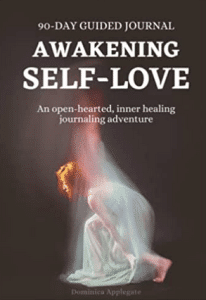Signs of Teen Drug Addiction
Table of Contents
As a parent, you want the best for your teens. You’re there for them, you provide for them, and you love them no matter what. The teen years can prove a bit of challenge for both the teen and the parent at times. What teen isn’t dealing with the common stresses of school and life? Trying to figure out who they are as young adults? Contending with peer pressure when it comes to alcohol and drugs? Drugs and alcohol are issues for many teens and it is important to know and recognize the signs of drug addiction.
Teens experimenting with alcohol and drugs
The truth is that many teens experiment with alcohol and drugs, and along with experimenting, some become hooked, or addicted. Oftentimes, their intentions are just to try it and “have some fun” with their friends, but before they know it, their bodies have become addicted and it’s tough for them to stop. They may not feel safe to turn to their parents for help.
Yes, as parents we want the best for our teens and we also tend to worry, especially about alcohol and drug addiction. With the more than two million teens out there who are struggling with addiction, perhaps you are wondering if your teen is one of them. Have you been noticing certain signs that he or she may have fallen prey to addiction? Have others come to you with concern?
Today, let’s take some time to look at some of the tell-tale signs that your teen may be addicted to alcohol or drugs. In case you notice some, you will want to know about Klinic online MAT.
Physical Signs of Addiction
- Bloodshot eyes
- Dilated pupils
- Not being able to sleep well or sleeping more than normal
- Frequent nosebleeds can be common for those snorting drugs
- Smelling like alcohol or unusual smells on their clothing
- Not willing to take care of their hygiene
- Slurred speech
- Having the “shakes”
- Waking up with a hangover often (that they may not admit to, but lay in bed all day sick)
- Having track marks on arms or legs
- Wearing long sleeves to hide marks (especially in summer)
- Burns on fingers or lips (from smoking drugs)
- Sudden weight loss
- Seizures
Behavioral Signs of Addiction
- Withdrawing from family and sometimes friends
- Acting sketchy, secretive, or suspicious
- Grades declining at school. They used to care about their grades and now they don’t.
- They get into more trouble at school
- Aren’t interested in their hobbies very much anymore. Lack motivation to do what they used to do.
- Steal money
- Borrow a lot of money
- More rebellious at home
- Become very angry when asked about their behaviors
- Lack of eye contact
- Locking bedroom door all the time
- Hanging out with teens that use drugs and/or drink
- Using fragrance in bedroom to try to cover up smell. Incense is common.
- Hiding alcohol, drugs, or paraphernalia in room, like pipes, butane lighters, bongs, rolling papers, aluminum foil, or makeshift drug devices
- Rags or papers soaked with chemicals. This is a sign of inhaling vapors.
- Reckless driving or accidents (see more here for a car accident lawyer)
- Secretive phone calls
- Sneaking out
- Makes a lot of excuses
- Unusually happy and full of energy randomly
- Disappearing for a long time
- Complaints from others about drug or alcohol use
Psychological Signs of Addiction
- Acting like an entirely different person
- Bad attitude, change in personality
- Mood changes often
- Looking “spaced out”
- Paranoia
- Severely depressed for no apparent reason
- Complains of excruciating pain over a period of time in efforts to get pain pills.
- Steal prescription pills from you or other family members
Granted, your son or daughter may or may not be addicted to drugs or alcohol and sometimes it’s really tough to know for sure. Of course, if your teen is displaying a lot of the signs above, he may indeed be addicted to something. The best course of action is to sit down and have a loving conversation with your teen about the subject. Let him know that you’re concerned about some behaviors that you see. Let him know that you would appreciate the truth, no matter what the truth is.
It’s important that your teen see that you are not coming at him with judgment. Your teen will most likely not admit to being addicted to alcohol or drugs, as he may not think he is. He may even refuse to admit that he drinks or drugs at all. This is common and can make it challenging for sure.
If your teen is struggling with addiction, know that there is help available for him or her and for you as Mom or Dad. Between support groups, 12 Step groups, counselors, and rehabs, there are helpful resources to help break free from addiction.
Stealing: A Common Tactic and Sign of Drug Use
Substance abuse wrecks all areas of a person’s life, from their mental and physical health to their relationships with friends and loved ones. The compulsion to use drugs might lead some to steal to get money for drugs. Theft is an all too common side effect of drug use. This problem can include stealing from friends and family, shoplifting from stores, and in some cases, outright robbery.
If you’ve experienced the act of theft by someone you love, know that you’re not alone. This might even provide you with the opportunity to address the addiction head on. This can serve as a starting point to help your loved one recognize the need for treatment and recovery. Treatment for substance abuse disorder can involve individual or group counseling, the use of medication, outpatient treatment, short-term residential treatment, or long-term residential treatment such as Honey Lake Treament.
Brad’s Story
A star wrestler in college, Brad started casually using opioid painkillers to get high with his buddies. This was part of his social circle, and it helped alleviate any pain related to post-practice soreness. However, his habit quickly increased from social use to taking pills in isolation. His friends started to notice that Brad was often high.
At first, they didn’t think too much of it. But then, Brad started showing up to practice with glossy eyes, or he didn’t bother showing up at all. His friends tried to intervene, but since they all used too, it fell on deaf ears. He told them that the drug use was completely under control.
Brad’s athletic performance was still exemplary, so they let it go, wanting to believe him. Then cash started disappearing from gym bags. His friends decided it was time to take action. They told their coach that Brad was most likely behind the theft.
When confronted, Brad became agitated and defensive. He insisted he didn’t steal anything and immediately lashed out to his friends. While it came as a shock to Brad’s teammates, the truth is that this story is not at all uncommon. Once addiction takes hold, people will do anything to get the money they need for their next fix.
From burglary to selling drugs, forgery, theft, and even receiving stolen goods, addiction will quickly transform a loved one into a veritable stranger. Some other signs of drug addiction include the following.1
- Failure to meet responsibilities at home, school, or work
- Inability to control or cut down on drug use
- Persistent cravings to use the drug
- Giving up previously enjoyed hobbies in favor of drug use
Statistics on Stealing and Drug Use
For some drug users, the habit of stealing develops alongside the addiction. As casual use leads to outright compulsive use, the need to obtain drugs takes priority. Users will go to any length to get more of their preferred drug. Research on drug related crime in the US has revealed startling statistics.2,3
- 18% of federal inmates and 17% of state prisoners reported that the reason they committed their crime had been to get money for drugs.
- About 25% of arrests for robbery involved marijuana, while 15% involved cocaine.
- Among first year inmates who used drugs on a regular basis, the top three crimes committed were:
- Larceny
- Motor vehicle theft, click here for professional assistance from a theft lawyer.
- Robbery
- Cocaine was associated with about 22% of larceny crimes.
- Methamphetamines and amphetamines were responsible for nearly 30% of motor vehicle thefts.
These statistics only represent self-reported actions of being under the influence while committing crimes. If statistics were adjusted to include everyone who routinely uses drugs (and not just self-reported cases) then the numbers are even more alarming.2
- Just under 63% of larceny arrests would be associated with drug use.
- More than 50% of burglary and robbery arrests would be drug-related.
- Nearly 68% of motor vehicle thefts would involve drug use.


















Add Comment